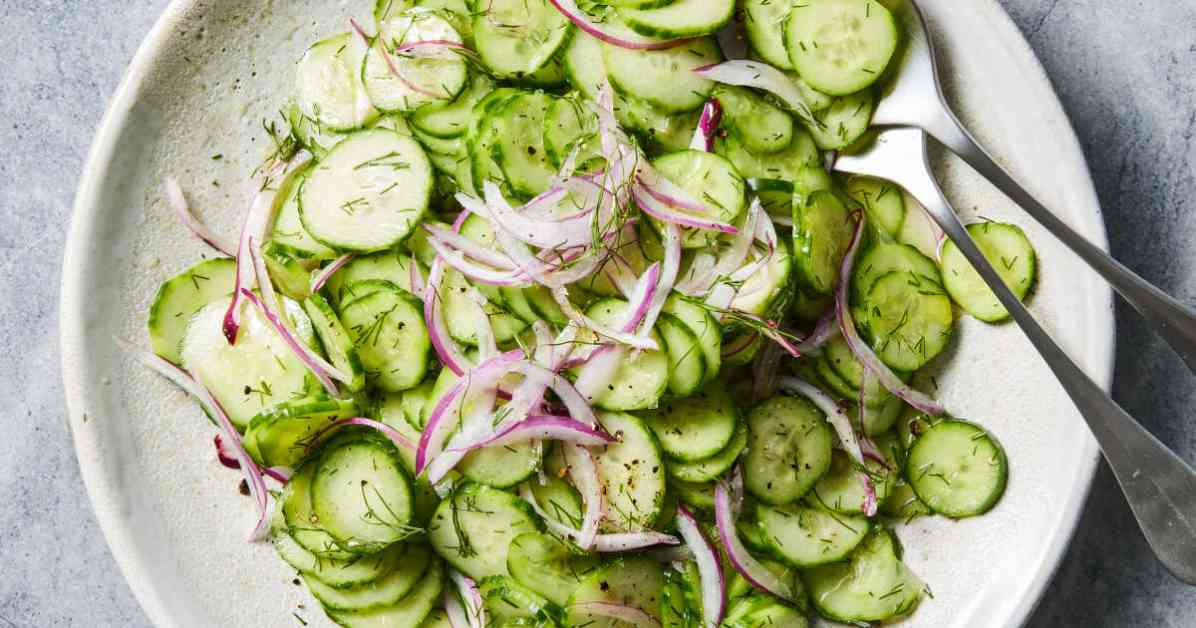TikTok Craze Causes Cucumber Shortage in Iceland
Supermarkets in Iceland are facing a cucumber shortage crisis due to a viral trend on TikTok that has led to an unprecedented increase in demand for the vegetable. Influencers on social media in the small Nordic country started sharing a recipe for a cucumber salad made with grated cucumbers, sesame oil, garlic, rice vinegar, and chili oil. This surge in demand has left suppliers scrambling to keep up with the sudden spike in orders, as reported by the BBC.
The cucumber shortage has caught many by surprise, with Icelandic farmers struggling to meet the high demand from consumers. Kristín Linda Sveinsdóttir, the marketing director of the Icelandic Farmers Association (SFG), revealed that the popular salad recipe has caused a strain on the local cucumber supply chain. Additionally, other ingredients for the salad are also experiencing shortages, further exacerbating the situation.
« Mr. Cucumber » Takes TikTok by Storm
The phenomenon can be traced back to a Canadian TikTok user, Logan Moffitt, who has amassed 5.5 million followers by sharing cucumber-based recipes almost daily since July. Known as « Mr. Cucumber, » Moffitt has gained widespread recognition, even being featured in prominent publications like the New York Times. His signature opening line, « Sometimes, you just feel like eating a whole cucumber, » has resonated with viewers worldwide.
While the cucumber salad recipe has undeniably contributed to the shortage in Iceland, Sveinsdóttir emphasizes that it is not the sole factor at play. Some cucumber producers are transitioning their crops at this time of year, leading to decreased productivity. Moreover, the end of summer vacations and the start of the school year are adding additional strain to the already stressed supply chain.
Impact of the Cucumber Shortage on Icelandic Consumers
The cucumber shortage in Iceland has had a significant impact on consumers, who are struggling to find the key ingredient for the popular salad recipe. Many have taken to social media to express their frustration at the lack of cucumbers in supermarkets, with some resorting to alternative vegetables or imported options to satisfy their cravings.
Local businesses that rely on cucumbers as a staple ingredient in their dishes are also feeling the effects of the shortage. Restaurants and cafes have had to adjust their menus and source cucumbers from abroad, leading to increased costs and logistical challenges. As the shortage persists, the culinary landscape in Iceland is undergoing a transformation as chefs get creative with cucumber substitutes.
Efforts to Alleviate the Cucumber Shortage
In response to the cucumber shortage, the Icelandic government and agricultural organizations are working together to address the supply chain issues and ensure a steady flow of cucumbers to the market. Measures such as increasing imports, supporting local farmers in boosting cucumber production, and exploring alternative sources of the vegetable are being considered to alleviate the strain on the supply chain.
Farmers are also adapting to the increased demand by adjusting their planting schedules and optimizing their cultivation practices to enhance cucumber yields. By collaborating with agricultural experts and leveraging technology, farmers aim to overcome the challenges posed by the cucumber shortage and meet the needs of consumers in Iceland.
The Future of Cucumber Consumption in Iceland
As the cucumber shortage continues to impact Iceland, consumers and businesses are exploring new ways to incorporate cucumbers into their diets and culinary creations. Alternative recipes that use different vegetables or fruits in place of cucumbers are gaining popularity, offering a fresh perspective on traditional dishes.
While the cucumber craze sparked by TikTok has caused disruptions in the Icelandic food industry, it has also highlighted the resilience and adaptability of farmers and consumers alike. The cucumber shortage serves as a reminder of the interconnectedness of global food supply chains and the importance of sustainable agriculture practices in ensuring food security for all. As Iceland navigates the challenges posed by the cucumber shortage, it is clear that innovative solutions and collective effort will be key to overcoming this temporary setback.

